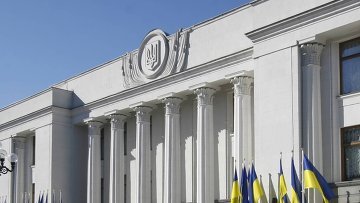MOSCOW, August 13 (RAPSI) - A US federal appeals court upheld a lower court’s decision Monday, affirming that the Ukrainian authorities should not be entitled to dismiss a breach of contract claim filed by Universal Trading & Investment Co., Inc. (UTICO) in the US, according to court documents obtained by RAPSI.
According to the decision, “Since we find that the Ukrainian defendants' transactions with UTICo constitute commercial activity exempt from immunity under the Foreign Sovereign Immunities Act… we affirm the district court's exercise of jurisdiction over UTICo's breach of contract claim.”
A lower district court had asserted jurisdiction over a case UTICO filed against Ukraine and two of its state agencies and instrumentalities, asserting that the latter had failed to pay for asset recovery work.
The plaintiff UTICO is incorporated in Massachusetts and engages in international asset recovery, according to court documents.
Defendants in the case include Ukraine, the Ukrainian Prosecutor General’s Office (PGO), and the Bureau for Representing Ukrainian Interests in International and Foreign Courts. The Bureau serves the function of paying for and supporting foreign contract work for Ukraine, according to the court documents.
UTICO asserted in its complaint that the defendants had breached a contract for services that it had in fact allegedly rendered, but that had allegedly remained uncompensated.
According to the court documents, the PGO had sought UTICO’s assistance in recovering assets expatriated from Ukraine by United Energy Systems of Ukraine (UESU), its principals – including former prime minister of Ukraine Pavlo Lazarenko, and its parent company, United Energy International, Ltd.
UESU was allegedly awarded a lucrative government contract connected with natural gas imports. Proceeds were then allegedly converted through the UESU parent company accounts and then spirited away to secret accounts belonging to UESU’s principals.
UTICO claimed that it played a key role in freezing hundreds of millions of dollars by uncovering fraud and providing evidence that was crucial to key players in the alleged scheme. Accordingly, UTICO filed suit in November 2010.
According to the court documents, “The Ukrainian defendants accepted UTICo's facts as true when they filed a motion to dismiss the complaint on grounds, inter alia, that they were entitled to immunity under the FSIA.”
The district court held, however, that the claim fell within the FSIA commercial activity exception. The lower court had stated: “Ukraine's attempt to lower the level of generality from a contract for the sale of asset recovery services to a contract for the sale of services to recover public assets impermissibly focuses on the purpose rather than the nature of the transaction.”
On appeal, the defendants raised three arguments: first, claiming that the alleged commercial activity at the core of the case never actually occurred and that the commercial activity exception was thus not satisfied; second, that the lower court was wrong in holding that the activity constituted commercial rather than sovereign activity; and third, that UTICO’s claim lacks the adequate nexus to the US required to establish jurisdiction.
Addressing the first point, the court stated that: “Together with the other evidence offered, we can conclude for the purposes of our review on a motion to dismiss that sufficient facts have been pled indicating that a unilateral contract was formed.”
On the point of commercial as opposed to sovereign activity, the court stated that it was required to focus on the nature of the conduct or transaction, not on its purpose. However, “The Ukrainian defendants have concentrated instead on the purpose of the agreements and the goal of its relationship with UTICo. Since we have found it impermissible to focus on the purpose rather than the nature of the underlying activity, we cannot find that the Ukrainian defendants have met their burden of persuasion here.”
To the issue of the US nexus, the court asserted that the focus is on commercial activity alleged in UTICO’s complaint as having been carried out in or created an effect in the US.
Finding the defendants’ arguments on appeal less than compelling, the appeals court affirmed the district court’s decision, holding: “We conclude that the district court did not err when it denied the Ukrainian defendants' motion to dismiss UTICo's breach of contract claim under the commercial activity exception to foreign sovereign immunity. Accordingly, the decision of the district court is affirmed.”



